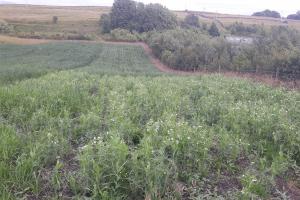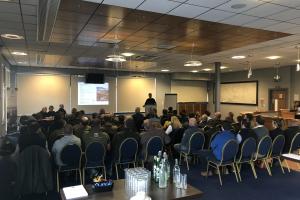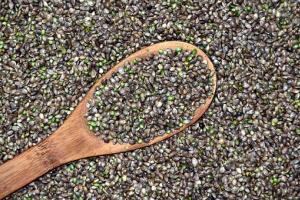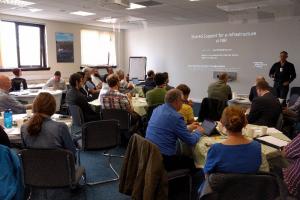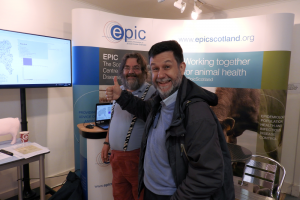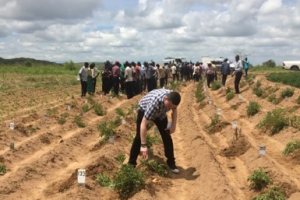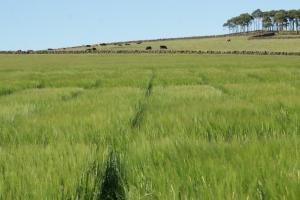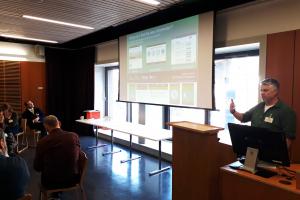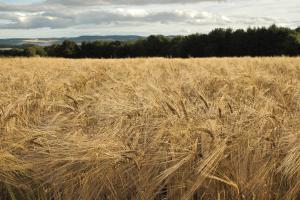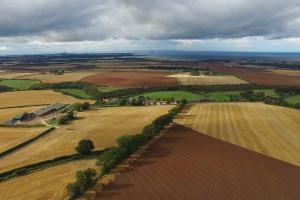In this blog, we are delighted Dr Alison Karley is able to share with us details of her recent Responsive Opportunity project, during which she visited the island of Lismore to discuss intercropping and the benefits it can have for agricultural sustainability.
The SEFARI Gateway Responsive Opportunity Fund is designed to increase the visibility of the invaluable contributions the Strategic Research Programme makes towards sustainable economic growth and improving the lives of people in Scotland and beyond.
We are delighted that in this blog Dr Beth Wells from the Moredun Research Institute discusses how her fellowship is helping with the effective use of medicated grit on Scottish grouse moors.
Facing current environmental emergencies, governments worldwide have set themselves ambitious targets to reduce greenhouse gas (GHG) emissions at national levels. Scotland is eager to make a pivotal contribution by setting a target of net-zero GHG emissions by 2045 and to reduce emissions by 75% by 2030. This calls for a holistic approach across industry, research, education, government, as well as changing individual behaviour.
High Performance Computing (HPC) is making major contributions across a wide breadth of scientific disciplines and is essential for advanced data processing for data visualization, mathematical modelling, data simulations and computational biology. HPC is also a topic we have a range of expertise in across SEFARI and is vital to our research.
In a previous blog article we described the development of the Cowtastrophy web app which was funded by the SEFARI Gateway’s Responsive Opportunity Fund. The main aim of the app is to communicate some of the key concepts which drive livestock disease control policies to a non-scientific audience. In particular, we see the app as a tool to support knowledge exchange at public events.
Finding ways to reduce and cope with the impact of climate change is vital to us all. In this blog, SEFARI researchers outline their ongoing work to find new ways to help; firstly, discussing how grasses have an important role in carbon sequestration and then outlining how a better understanding of crop genetics will enable us to cope with climate change and improve food security.
In this blog, Professor Fiona Burnett of SRUC shares her experiences of agronomy (a branch of agricultural science that deals with the study of crops and the soils in which they grow). Fiona discusses integrated and sustainable ways of producing barley with growers who are concerned about the impact that fertiliser and pesticide inputs can have on the carbon footprint of the crop.
The challenge of envisioning the future climate of Scotland has been made easier due to a new set of climate change projections for the UK (UKCP18). Climate change is likely to substantially alter many aspects of our lives, our environment and economy. Therefore, it cuts across many policy domains and all sectors. The new projections present an opportunity for improving our ability to research climate change impacts, plan for adaptation and explore opportunities for mitigation and adaptation.
We are pleased that Bob Rees, Scotland’s Rural College is able discuss reducing greenhouse gas emissions from cropping systems. This post was originally published by the Scottish Parliament’s Information Centre (SPICe), who commissioned SEFARI to write a series of blogs to stimulate debate on this issue. SEFARI research takes a collaborative approach and looks at this complex and challenging issue fro
We are pleased that Andrew Barnes and Vera Eory, Scotland’s Rural College are able to discuss the role of precision agriculture in reducing greenhouse gas emissions.
